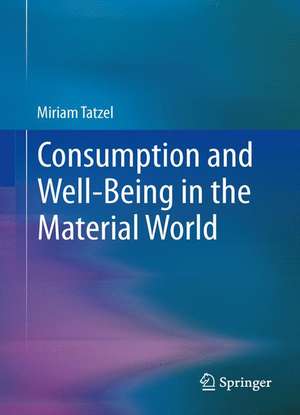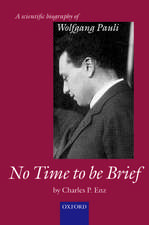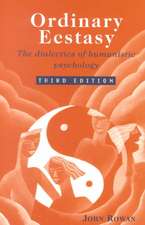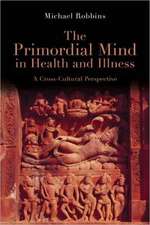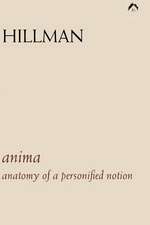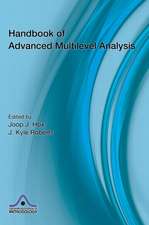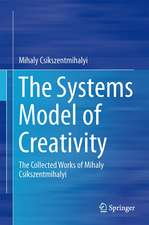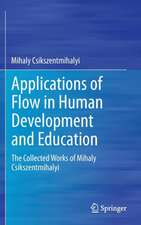Consumption and Well-Being in the Material World
Editat de Miriam Tatzelen Limba Engleză Hardback – 17 oct 2013
This volume appeals to academics, professionals, students and others interested in materialism and consumer well-being.
| Toate formatele și edițiile | Preț | Express |
|---|---|---|
| Paperback (1) | 636.12 lei 6-8 săpt. | |
| SPRINGER NETHERLANDS – 23 aug 2016 | 636.12 lei 6-8 săpt. | |
| Hardback (1) | 642.18 lei 6-8 săpt. | |
| SPRINGER NETHERLANDS – 17 oct 2013 | 642.18 lei 6-8 săpt. |
Preț: 642.18 lei
Preț vechi: 755.51 lei
-15% Nou
Puncte Express: 963
Preț estimativ în valută:
122.90€ • 126.96$ • 102.28£
122.90€ • 126.96$ • 102.28£
Carte tipărită la comandă
Livrare economică 25 martie-08 aprilie
Preluare comenzi: 021 569.72.76
Specificații
ISBN-13: 9789400773677
ISBN-10: 9400773676
Pagini: 200
Ilustrații: VIII, 198 p. 18 illus.
Dimensiuni: 155 x 235 x 25 mm
Greutate: 0.47 kg
Ediția:2014
Editura: SPRINGER NETHERLANDS
Colecția Springer
Locul publicării:Dordrecht, Netherlands
ISBN-10: 9400773676
Pagini: 200
Ilustrații: VIII, 198 p. 18 illus.
Dimensiuni: 155 x 235 x 25 mm
Greutate: 0.47 kg
Ediția:2014
Editura: SPRINGER NETHERLANDS
Colecția Springer
Locul publicării:Dordrecht, Netherlands
Public țintă
ResearchCuprins
Introduction.- Chapter 1: Consumption and Well-Being, An Introduction; Miriam Tatzel.- PART I: Money and Consumption for Well-Being.- Chapter 2: Money for Happiness: The Hedonic Benefits of Thrift; Joseph Chancellor and Sonja Lyubomirsky.- Chapter 3: Getting the Most for the Money: The Hedonic Return on Experiential and Material Purchases; Travis J. Carter and Thomas Gilovich.- Chapter 4: Loneliness, Material Possession Love and Consumers' Physical Well-Being; John L. Lastovicka and Laurel Anderson.- PART II: Individual and Cultural Variations.- Chapter 5: Value Seekers, Big Spenders, Non-Spenders and Experiencers: Consumption, Personality and Well-Being; Miriam Tatzel.- Chapter 6: Money, Materialism and the Good Life: Cultural Perspectives; Christie Napa Scollon and Derrick Wirtz.- PART III: Consumption and Sustainable Well-Being.- Chapter 7: Happy Planet, Happy Economy, Happy Consumers? Charles Seaford.- Chapter 8: Measuring What Matters; Eric Zencey.- Conclusion.- Chapter 9: Confessions of a Closet Materialist: Lessons Learned about Money, Possessions and Happiness; Miriam Tatzel.
Notă biografică
Miriam Tatzel is a social psychologist, Columbia University Ph.D. She worked with Stanley Schachter on studies of obesity and eating behavior, and she did her dissertation on self-esteem and attitude change under the sponsorship of William J. McGuire. Following a post-doctoral fellowship at the University of Massachusetts, Amherst, she joined the Social Science Research Council, where she assessed government-sponsored early education programs; she co-authored a volume on these programs with Eleanor Maccoby, the developmental psychologist. In the 1970's, she was an Assistant Professor of Psychology at Hunter College of the City University of New York. Her next move was to an innovative institution, Empire State College, State University of New York, which matched her growing interest in alternative education, and where she has now been a long-time Professor. Her research has concentrated on psychological aspects of consumption, as well as studies of the educational process. In the consumer area, she has done research on clothes shopping and successful vs. troubled shoppers. An interest in money and how people spend it led her to develop a typology of consumers based on whether they are cautious with money or not, and whether they have high material aspirations or not. She is working on identifying pathways to well-being among different approaches to consumption.
Textul de pe ultima copertă
This volume addresses how we can find happiness and well-being in the material world. It builds on previous works that find that materialism is associated with lowered well-being (materialists are less happy) and that consumerism, in all its profusion, is harmful to environmental well-being. How can we use the money and possessions in our lives in the service of well-being? Apparently not by being materialistic. Can we benefit from the many wonders of the marketplace -- in technology, convenience and aesthetics -- without falling prey to the lures and dangers of excessive material preoccupation? Can we meet our material needs in ways that nourish growth and well-being? The authors of the chapters in this volume are on-going researchers into such questions. Herein you can learn about the hedonic benefits of thrift and of spending on experiences; how possessions can be beneficial; how different types of consumers spend money; cultural variations in conceptions of the "good life;" how we might reconcile environmental and consumer well-being; and how to measure the whole of human, economic, and environmental well-being. Taken all together, this collection finds grounds for compatibility between what's good for the consumer and what's good for the environment.
This volume appeals to academics, professionals, students and others interested in materialism and consumer well-being.
This volume appeals to academics, professionals, students and others interested in materialism and consumer well-being.
Caracteristici
Addresses materialism and well-being from individual to global levels Applies positive psychology to the consumer domain Shows how money can be spent in support of well-being Strikes a middle ground between anti-consumerism and the promotions of the marketplace Grounded in findings by leading researchers Includes supplementary material: sn.pub/extras
